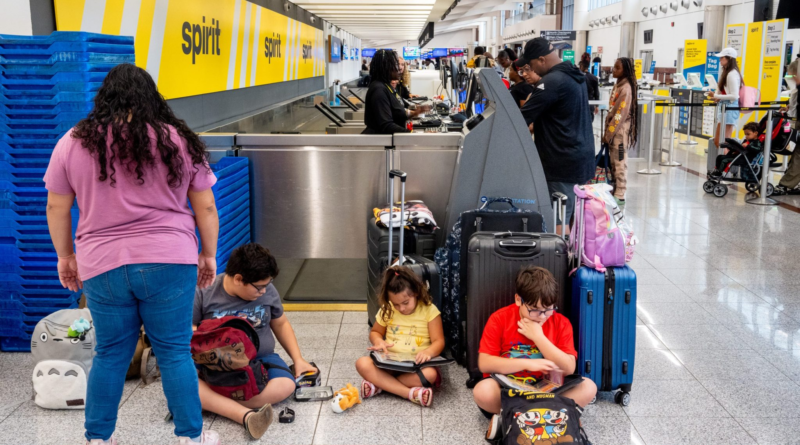Spirit Airlines shares surge 35% on news of possible merger with Frontier
Shares of Spirit Airlines soared roughly 35% Wednesday morning on news fellow budget airline Frontier is exploring a renewed bid for one its closest competitors. While a potential tie-up between the two budget carriers has been floated for months, a new report from The Wall Street Journal suggests a deal may be imminent. Citing people familiar with the matter, the report says the firms have renewed talks at a time when cash-strapped Spirit is struggling to stay afloat in a tough period for low-cost carriers.
Spirit’s shares plunged to record lows after the Journal reported earlier this month that the airline had initiated discussions with bondholders over the terms of a potential bankruptcy filing. The company has since managed to push back its deadline to refinance roughly $1.1 billion in debt, according to a regulatory filing last week. That news caused the stock to rise over 50% on Monday, pushing it back over the $2 mark.
If the two airlines reach a deal, Spirit would also likely restructure its debt and other liabilities in bankruptcy, sources told the Journal. Last week, the airline exhausted the last $300 million available under its credit line.
On Wednesday, Spirit did not immediately return a request for comment.
It’s been a tough period for budget airlines, who have seen the industry’s major players increasingly win over bargain hunters. Consumers have splurged more while traveling since the pandemic, lowering the appeal of no-frills options. Traditional low-cost carriers, meanwhile, have been unable to pass on rising costs, including for employees and fuel, onto consumers.
Now trading at penny-stock levels, Spirit shares have lost nearly their entire value since reaching an all-time high of $84.57 in December 2014. They fell 80% in January after a federal judge said a planned $3.8 billion merger with JetBlue violated antitrust law, which signaled what was to come. A lawsuit from the Department of Justice in March proved to be the deal’s death knell, sparking passionate criticism from Spirit CEO Ted Christie III.
“The fact that DOJ even brought a case to block a merger between two carriers with less than 8% combined market share just shows how uninformed the government is about our dynamic airline business, particularly in the post-COVID era,” he said on an earnings call in May.
Now, his company finds itself on the brink of bankruptcy. Spirit hasn’t made money since the pandemic, posting losses in eleven straight quarters. Last quarter, the hit to net income totaled $193 million.
Spirit has furloughed 260 pilots and delayed delivery of previously ordered planes by about five years, moves the company said will boost liquidity by $340 million over the next two years. Much like Southwest Airlines, which still faces intense activist pressure from Elliott Management, Spirit has also recently announced big changes to its operations. That includes new premium seating offerings, which have become a vital revenue stream for rivals.



